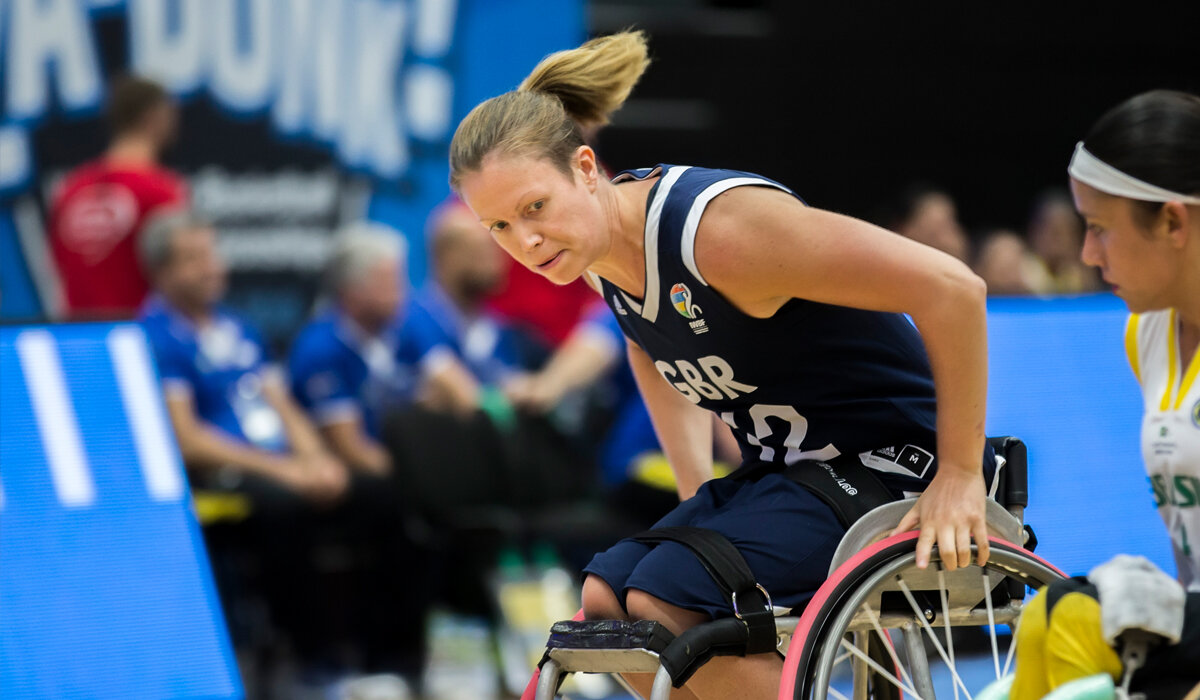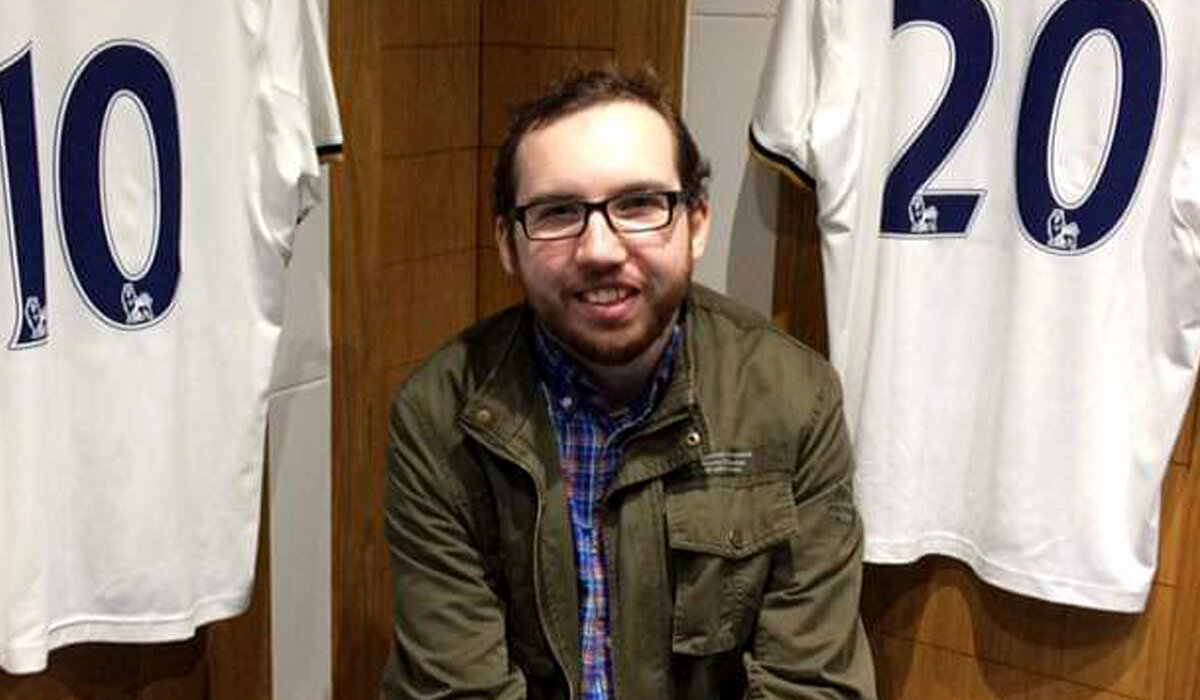
"I am over-sensitive to sensory stimuli, which can be difficult in a lot of aspects of life, not just basketball."
Sarah Hope
- on her experience of sensory differences
Photo credit to BWB
Stories from the Spectrum: Sarah Hope
We know 99% of people have heard of autism but only 16% of autistic people feel the public understand them.
During World Autism Awareness Week 2020, we are interviewing autistic people and their families about how they experience intense anxiety in social situations, need extra time to process information and instructions, have communication difficulties, anxiety around unexpected change or sensory sensitivities with sound smell, light, taste and touch. These are the five biggest things autistic people and their families told our charity they most want the public to know about autism.
Our charity also asked autistic people, their families and carers to tell us how they are responding to the coronavirus (Covid-19) outbreak during this difficult and unprecedented time. For the National Autistic Society’s latest guidance and advice about autism and coronavirus (Covid-19), visit our dedicated resources webpages.
Meet Sarah Hope, an autistic wheelchair basketball player for Team GB currently training for the Paralympics (now postponed). Sarah tells us about experiencing sensory sensitivities when playing sport and shares her tips for autistic people and their families...
When were you diagnosed as autistic?
The difficulties associated with being an undiagnosed autistic person became more pronounced for me as a teenager. I didn’t understand why I couldn’t do the same things as easily as my peers and I blamed myself. I sought help in 2003 and was initially misdiagnosed, but, with the increase of information available about how autism presents in women and girls, I did my own research and later self-diagnosed as autistic. I had some difficulties with accepting and being open about this part of myself and so I got an official diagnosis in 2016, which helped me come to terms with it. Having a diagnosis meant I understood why I should make allowances for myself, how to use my strengths and live a more authentic life.
What is being over- or under-sensitive to sound, smells, light, taste and touch like for you?
I am over-sensitive to sensory stimulus, which can be difficult in a lot of aspects of life, not just basketball. Basketball is noisy and fast paced - there's a lot of things going on very quickly in a brightly lit hall, the sound of the ball bouncing is echoing around, the metal on metal clash of the chairs, players shouting to each other over the background noise, or the sound of the crowd.
"I am over-sensitive to sensory stimulus, which can be difficult in a lot of aspects of life, not just basketball."
It can feel like I'm being smothered by sensory information and there are some days I find it all too overwhelming.
There are also advantages that come with being autistic. For example, I’m very observant and notice things others miss. I find it quite easy to keep to a training and nutrition schedule, even if I'm not feeling motivated that day. I also find it easy to focus on something I’m enjoying, so I can practise something over and over until I get it right without getting bored.
When did you start playing wheelchair basketball?
I started playing wheelchair basketball in 2010. I’d previously enjoyed running but my disability progressed to the point that I was no longer able to run. A friend invited me along to watch a wheelchair basketball training session and I ended up joining in. I was initially hesitant because I tended to prefer individual sports over team sports, but I instantly loved the game and signed up to play the following season.
When did you start training/qualify for the Paralympics?
The Tokyo 2020 Paralympics has been my goal for the last four years, since the Rio Paralympics finished, and I’ve been training full-time with the team since September 2017. The team qualified for Tokyo in the European Championships in 2019 so, as far as we know, our spot is secured. The 12 players to actually go were due to be selected in June this year, but with the recent news of the postponement of the Games this is likely to be delayed to match.
How has your team been supportive?
My team has mostly been very supportive. I decided to be honest about being autistic at the same time that I went part-time at work to allow me to train every day. Being open with each other is a big part of our team culture and I knew I wouldn’t be able, or want, to hide it from them. Being in a team where everyone has varying needs and abilities due to their physical impairment means no one is seen as different from the norm as there really is no normal! I think this mindset has meant that I don’t feel any different from anyone else, I just have slightly different needs and abilities.
What advantages do you feel being autistic gives you when playing sport?
Being autistic means that I have no problem with practising a skill over and over again without getting bored. I can easily self-motivate to spend time on one thing, even when I’m on my own. I also like to think that I stick to the game plan that the coach has laid out before each game. I see the plan as new rules to adhere to, but you’ll have to ask my coach whether that actually works!
Are there any barriers to playing sport you have faced as an autistic person? As a society, how do you think we can overcome these barriers?
I definitely believe there are sports that are more easily accessible to autistic people than others, in the same way that there are sports more suited to people with different types of physical disabilities than others. I found running had fewer barriers as that’s something I did on my own, on my own schedule, and on my preferred routes. A fast-paced team sport like wheelchair basketball has the added pressures of being on a noisy and brightly lit court, where wins and losses are decided on split second decision-making, and the ability to effectively communicate is just as important as playing skills. These are all things that I have struggled with in my time playing basketball. Some, you can mitigate. For example, when we train on court, we have only 50% of the fluorescent lights on, or sometimes I’ll wear earplugs in the gym. Others, such as the noise of a crowd, is something you have to deal with as best you can.
What advice would you give to an autistic person who wants to start getting involved in sport, but might feel nervous?
Do your research before you start. If you get anxious about doing something for the first time (which I definitely do!) then try to find as much information about your chosen activity to ease some of that anxiety. Watch a video of that sport, find out the basic rules and etiquette, or try to speak to someone that already does that sport. Find out what kit you might need with you, what the venue or location looks like, how many people will be there with you, and when you might get breaks. I wear earplugs in the gym sometimes, and dim the lighting on court. If you're particularly sensitive to sensory input then, depending on the sport, you might be able to do something similar. If there's a coach, or leader, explain to them that you might need to see things demonstrated instead of just described. Remember, the first time you try something will be the hardest so don’t be put off if it was too much or if you don’t feel that you enjoyed it as much as you had hoped. It will only get easier and more enjoyable the more you do it!
We know anecdotally autistic women and girls are diagnosed later than men and boys. Why do you think this is?
I’m by no means an expert, but I’m aware I spent a lot of time, as a child, watching and mimicking other people’s social interactions. I also set a vast number of rules for myself, such as social scripts (if someone does ‘THIS' then you say ‘THIS') in an attempt to blend in with my peers. This also goes for suppressing stimming when I realised other kids didn’t do it, hanging around in a group at school instead of spending time on my own, and a plethora of other 'survival skills' I adopted to fit in. I believe it’s this awareness and attempt to blend in that disguises autism in women and girls.
What's next for you?
We were supposed to be attending a number of tournaments in the lead up to the Tokyo Paralympics but with the current travel limitations, and now that the Games have been delayed, I’m sure these have been cancelled. In the short term, I'm concentrating on the things that I can control; to stay fit and healthy in the best way I can whilst adhering to the government advice about staying at home. As soon as I hear we can return to training then I'll be back to concentrating on selection for Tokyo 2021!
How have you been impacted by the coronavirus (Covid-19) outbreak and what is your advice for autistic people, their families and carers?
We haven’t been training as a team since Monday 16 March so I've been doing my best to train at home. Not knowing how long I'm likely to be indoors and the disparity of training in my own home is creating a lot of anxiety for me, along with all sorts of other worries. The best thing for me is to carry on with my routine the best I can. That would be my recommendation for anyone else that finds themselves feeling a little lost right now. I’m ensuring that I get up at the same time each day, that I work out at the time that I normally would, and that I eat the same food (if I can). I’m avoiding too much social media speculation and concentrating on the things that I can control. Everyone will be feeling anxious about different things and I’m doing my best to acknowledge that my feelings of anxiety about my disrupted routine, my lack of ability to plan for the future, or the fact that I can’t get my same foods in the supermarket are not ‘wrong', they’re just different to others or people who are not autistic.
Similar stories

"Swimming for the National Autistic Society was the incentive to get active."
Glen Brown
- on fundraising for our charity
Read more

"In times of such difficulty, what football brings is enjoyment, reassurance and a pleasant distraction imbuing us with feelings of comfort and relief."
Jack Howes
- on his love of football
Read more

The Spectrum magazine
Explore one of the UK's largest collections of autistic art, poetry, and prose. The Spectrum magazine is created by and for autistic people, and is available both online and in print.
Read the Spectrum





You are not alone
Join the community
Our online community is a place for autistic people and their families to meet like-minded people and share their experiences.
Join today